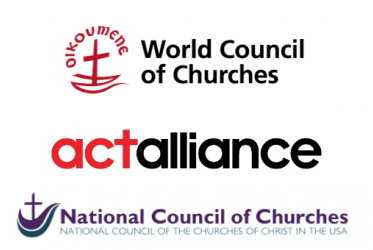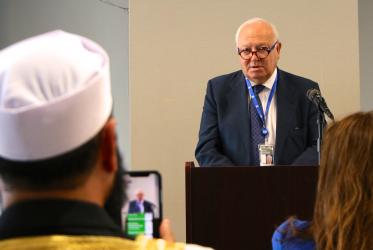Displaying 61 - 80 of 214
Kirche sollten ihre Stimme gegen den Klimawandel erheben
26 February 2020
Churches should use their voice on climate change
26 February 2020
Las iglesias deben usar su voz sobre el cambio climático
26 February 2020
WCC condemns attack at Hanukkah celebration in New York City
29 December 2019
Worshipping safely: UN, faith communities unite to prevent violence
20 September 2019
Dr Saïd Ailabouni: God is on the side of rejected, oppressed, occupied
12 September 2019
ÖRK intensiviert Engagement für Abrüstung
28 August 2019
WCC pressing ahead with disarmament work
28 August 2019





